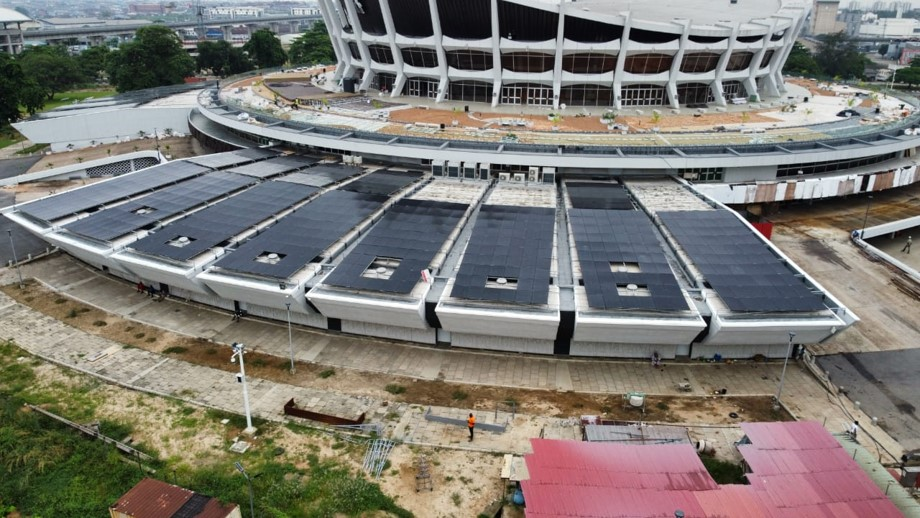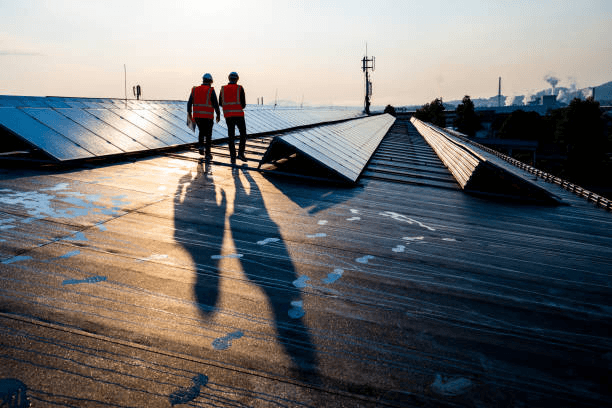Solarmate was contracted to build a solar hybrid power plant as part of the restoration of the National Arts Theatre in Lagos Nigeria. Solarmate is proud to be part of the restoration of this monumental national edifice. Securing this contract is testament to the skills and expertise of the Solarmate team.
Photovoltaic solar panels were installed on roof of the four wings of the complex, whilst the power equipment and the battery bank were installed in pre-fabricated containers within the power area.
The main equipment on this project include; 1.2MW all-black photovoltaic solar panels; 1.5MW of PV inverters, 2.5MW of Power Conversion System and 4.8MWH of Lithium batteries.
The SunTera BESS from Jinko marks a historic first for Sub-Saharan Africa.
The solar system will generate at least 1330MWh of electricity annually and when the National Theatre is fully operational, the solar power system should be able to supply over 50% of its power requirement.
The project was engineered and installed entirely by Solarmate.
The solar system is a milestone for Solarmate Engineering and for the Nigeria solar industry as it is one of the very first grid tie systems at medium voltage.
The success of this installation is due to our client and consultants and the entire design and construction team at Solarmate.
Solarmate is committed to bringing clean energy to Nigeria and Africa.








